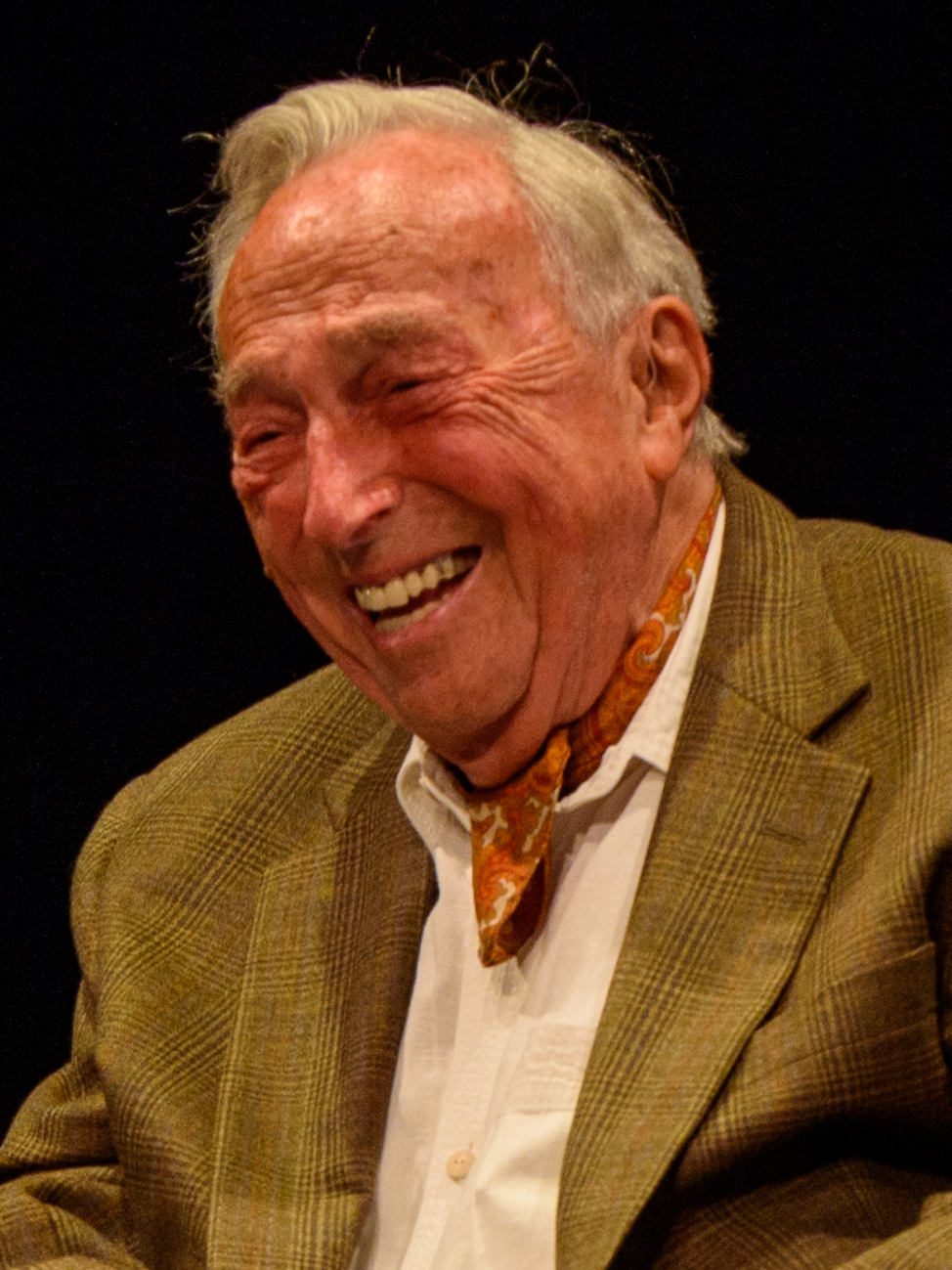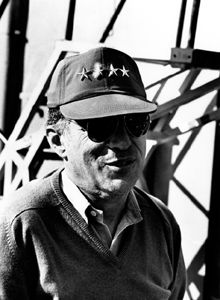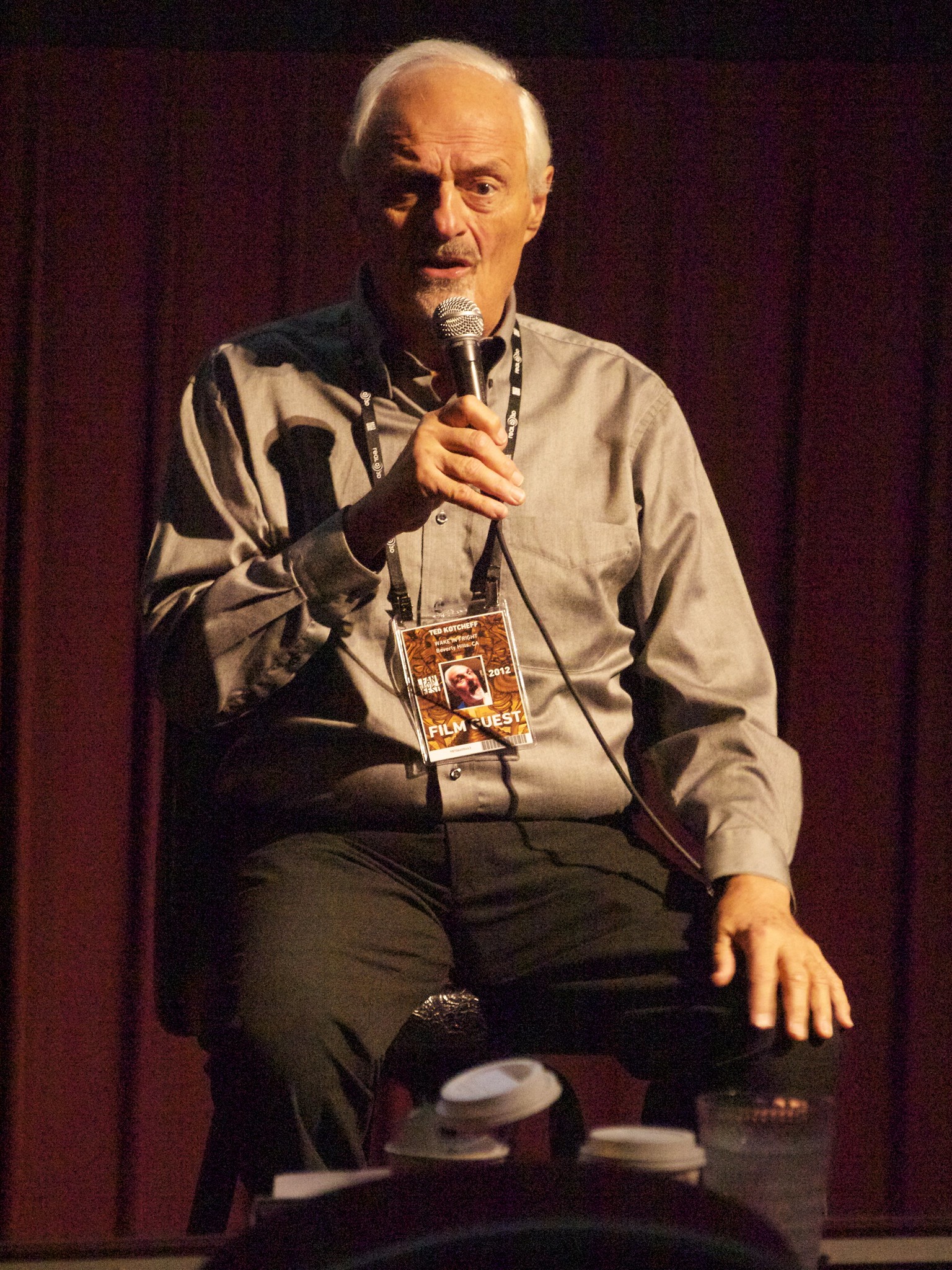Abraham “Alvin” Rakoff, director, producer, writer (born 6 February 1927 in Toronto, ON; died 12 October 2024 in London, England). Alvin Rakoff was a film, television and theatre director. His career spanned more than five decades with more than 100 credits to his name. Rakoff was a pioneering director in the British film and television industry, beginning with live black and white television plays. He helped launch the careers of actors Sean Connery and Alan Rickman and notably directed Sir Laurence Olivier in the 1982 drama A Voyage Round My Father. Rakoff also worked briefly as a journalist and wrote three novels, two memoirs and several screenplays. He won two Emmy Awards as a director.

Early Life, Education & Early Career
Abraham Rakoff was born in Toronto, the third of seven children born to Samuel Rakoff and Pearl Isenberg. He was called Alvin by his family and kept the nickname throughout his life. Rakoff’s parents were both Jewish, his father from Russia and his mother from what is now Ukraine. Rakoff lived in Toronto’s Kensington Market neighborhood. His parents ran a general merchandise store on Baldwin Street, and the family lived above it. Rakoff recalled that the business was perhaps best known for selling sugar bags during the Second World War, because they were made from cotton and could be repurposed for clothing.
Rakoff recalled growing up in poverty during the Great Depression and war years. His father was unsuccessful in business and went bankrupt several times. Rakoff’s mother would get stale bread and rotting onions to make onion sandwiches. In interviews later in his life, he recalled going to bed hungry often in his childhood.
During his teenage years, Rakoff took part-time and summer jobs to help his family. He experienced antisemitism for the first time in his life at the age of 16 when working at Coca-Cola in Toronto. It was then that he decided to go by Alvin in public.
Education and Early Career
Wanting to become a writer, Alvin Rakoff enrolled at the University of Toronto to study English. He graduated in 1948 and briefly considered going into the family business with a brother. Before doing so, he took a trip to New York City and saw Marlon Brando on Broadway in A Streetcar Named Desire. He was so impressed with Brando’s performance that he decided to come back home and find work in a creative field, either as a writer or a journalist.
He then found work as a journalist, an occupation he kept until 1952. During this time, he worked for a number of newspapers in Ontario, including stints at the Windsor Star and the Globe and Mail.
Alvin Rakoff in 1954
TV writer Iain MacCormick (left), and director Alvin Rakoff seated at a console table, 1 June 1954.
(photo by Evening Standard, courtesy Hulton Archive via Getty Images)
Television and Film Career
By the mid-1950s, Alvin Rakoff had started writing for the CBC. Before long, he decided to pursue a career at the British Broadcasting Corporation (BBC) and left for the United Kingdom. Rakoff was told on the trip there that Canadians wouldn’t be hired by the BBC. Despite this, he sold a script to the BBC shortly after arriving in England. This led him to become, at age 26, the youngest director in the BBC’s drama department. He began writing for them regularly before adapting a prominent novel. He was then invited to join the BBC’s producers and directors course. Rakoff made his mark on the BBC directing a series of acclaimed live teleplays.
From 1957 onward, Rakoff worked as a freelance director and producer, mostly focused on anthology teleplay series for British television.
In 1957 Rakoff cast a then unknown Scottish actor named Sean Connery in his first leading role in Requiem for a Heavyweight. The same production also featured Michael Caine as an extra. It was Rakoff who later recommended Connery to producer Albert Broccoli for the role of James Bond.
Beginning in 1958, Rakoff focused on original television dramas, directing nine plays in as many years. He also directed episodes of ITV’s Television Playhouse.
In the 1970s, Rakoff directed two productions for British television: The Adventures of Don Quixote (1973) and Rome and Juliet (1978). The latter launched the career of actor Alan Rickman. Both adaptations were well received and drew acclaim for their cinematic quality and striking visuals.
Though very successful at directing television productions, particularly teleplays, Rakoff had difficulty breaking into film direction. He directed around a dozen films during his career, including the cult horror film Death Ship (1980), the disaster film City on Fire (1979) and the adventure film King Solomon’s Treasure (1979). These films were all critically maligned.
Rakoff’s last television directing credit was for two episodes of the 1997 miniseries A Dance to the Music of Time. He continued to work, directing plays into his 80s at The Mill at Sonning theatre, along with his second wife, Sally Hughes.
Alvin Rakoff in 1962
(L–R) Sir Ralph Richardson, Terence Rattigan, director Alvin Rakoff, Kenneth More, Wendy Craig and Jean Marsh at a rehearsal for the TV movie The Largest Theatre in the World: Heart to Heart, 22 October 1962.
(photo by Evening Standard, courtesy Hulton Archive via Getty Images)
Writing
In addition to writing professionally as a journalist and for television, Rakoff wrote three novels. These included Baldwin Street, which reflects on his youth growing up poor in Toronto’s Kensington Market. He also wrote the novels & Gillian and The Seven Einsteins.
In his 90s, Rakoff wrote two memoirs: I’m Just the Guy Who Says Action (2021) and I Need Another Take, Darling (2022). Rakoff also wrote two plays, including a stage adaptation of Raymond Chandler’s hardboiled detective novel, The Big Sleep.
Awards
Alvin Rakoff made an impression early in his career, earning a 1954 National Television Award in the UK for directing Waiting for Gillian. He was also nominated for three BAFTAs over the course of his career.
In 1967, Rakoff won an Emmy Award for the drama Call Me Daddy. He also won an Emmy for the 1982 drama A Voyage Round My Father.

 Share on Facebook
Share on Facebook Share on X
Share on X Share by Email
Share by Email Share on Google Classroom
Share on Google Classroom







